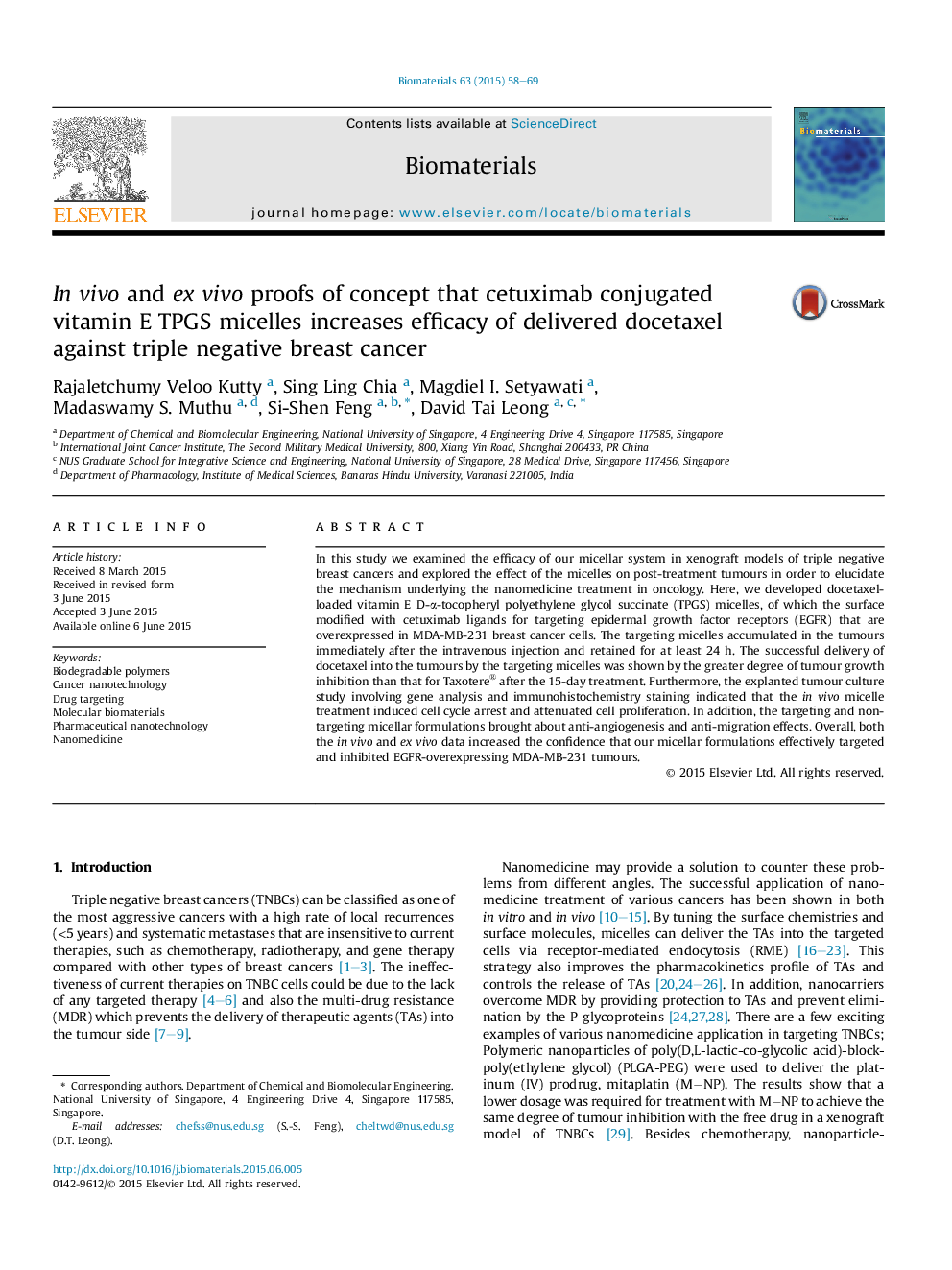| Article ID | Journal | Published Year | Pages | File Type |
|---|---|---|---|---|
| 5618 | Biomaterials | 2015 | 12 Pages |
In this study we examined the efficacy of our micellar system in xenograft models of triple negative breast cancers and explored the effect of the micelles on post-treatment tumours in order to elucidate the mechanism underlying the nanomedicine treatment in oncology. Here, we developed docetaxel-loaded vitamin E D-α-tocopheryl polyethylene glycol succinate (TPGS) micelles, of which the surface modified with cetuximab ligands for targeting epidermal growth factor receptors (EGFR) that are overexpressed in MDA-MB-231 breast cancer cells. The targeting micelles accumulated in the tumours immediately after the intravenous injection and retained for at least 24 h. The successful delivery of docetaxel into the tumours by the targeting micelles was shown by the greater degree of tumour growth inhibition than that for Taxotere® after the 15-day treatment. Furthermore, the explanted tumour culture study involving gene analysis and immunohistochemistry staining indicated that the in vivo micelle treatment induced cell cycle arrest and attenuated cell proliferation. In addition, the targeting and non-targeting micellar formulations brought about anti-angiogenesis and anti-migration effects. Overall, both the in vivo and ex vivo data increased the confidence that our micellar formulations effectively targeted and inhibited EGFR-overexpressing MDA-MB-231 tumours.
